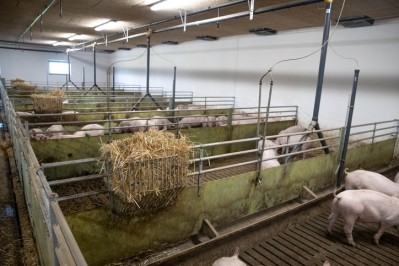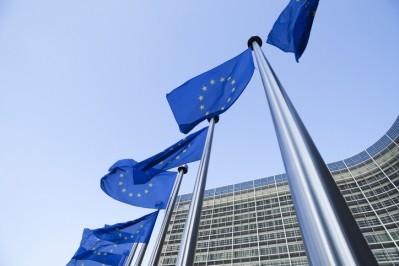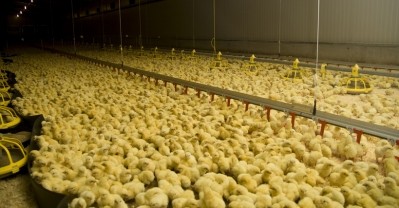DSM and Novozymes launch new phytase targeting monogastric and aquaculture production

It was launched at the IPPE trade show in Atlanta last month.
Developed through the DSM and Novozymes alliance, the partners said producers using the new phytase product can expect increased efficiency, and improved thermostability, giving them opportunities to reduce feed costs and more flexibility in diet optimization.
The HiPhorius launch follows the market introduction of their second-generation protease, ProAct 360, in June last year.
Dosage levels
There are two ways that producers can determine the correct dosage of HiPhorius, according to Kostas Stamatopoulos, global product manager, phytases, DSM.
“DSM has created a table of dosages per species: broilers, layers, swine, and aquaculture. The nutrient release will determine the correct dosage for each species, and it can be administered to the animals in a granulated form or in liquid form depending upon pelleting temperature.
“We will also be further launching an online phytase web tool in March. This online tool will allow producers to allocate the optimum dosage for each species determined by the phytate-phosphorus content of the diet.”
Along with its use in broiler and laying hen production, the enzyme is suitable for minor poultry species such as ducks and turkeys, he said.
Moreover, it is applicable for use in the diets of a wide range of fish species for cold-water such as trout, warm-water fish like tilapia and Mediterranean marine species including sea bream.
“We’ve had incredibly positive feedback from the customers who have had the opportunity to evaluate HiPhorius,” he told us.
Sustainable use of natural resources
For decades, animal protein producers have relied on phytases as an alternative to inorganic phosphate for both economic and sustainability reasons, said DSM. Inorganic rock phosphate is a non-renewable resource that needs to be managed efficiently. As prices of this source of inorganic phosphorus have increased over recent years and pressure for more sustainable animal production grows, more attention has been paid to phytases in terms of their ability to deliver greater efficiency, it said.
“HiPhorius reduces the need for this expensive feed ingredient, as it increases phosphorus digestibility across species,” said Stamatopoulos.
“In broilers, we have found HiPhorius to be a very efficient new-generation phytase that rapidly eliminates dietary phytate and mitigates the formation of calcium-phytate complexes in the gastrointestinal tract.
"Enabling the use of digestible calcium for precision broiler nutrition allows for improved broiler growth performance and nutrient utilization, while promoting the sustainable use of natural resources,” he said.
An increase of HiPhorius dose in diets of poultry, swine and aquaculture species results in near-complete phytate hydrolysis, leading to improved feed conversion ratio (FCR) and growth rate, he added.
Market roll-out, EU registration
HiPhorius, continued Stamatopoulos, will be available to a wide variety of markets throughout 2022. With North America the launch pad, the phytase will also be introduced to the LATAM and South Asian markets later in 2022.
“In December 2021, we submitted an EU dossier covering poultry, pigs, and aquaculture species according to the new [EU registration] transparency rules.
"Currently, DSM is the only company pursuing authorization for a brand new phytase product for aquaculture. We’re doing this because we see an explicit need for phytase innovation in aquaculture to improve welfare, sustainability and performance.”











